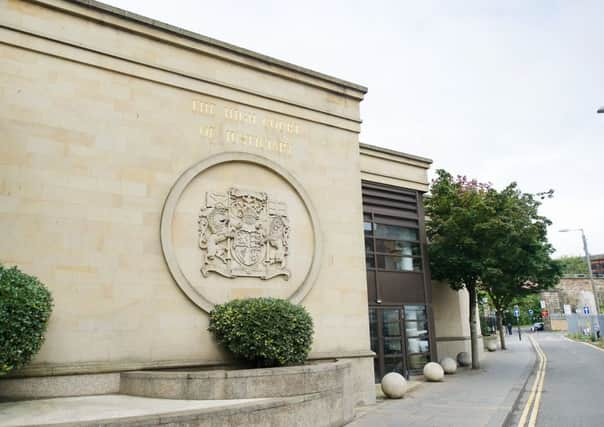Rape victims should not have to give evidence in court, says Scotland's top judge


Lord Carloway said alleged victims of such crimes should be able to give filmed statements within 24 hours, warning that the current system put them through an unfair “memory test”.
He also said the cross-examination of rape victims should take place well before the trial and away from court, arguing this would be a much better way of getting to the truth.
Advertisement
Hide AdAdvertisement
Hide AdIn an interview with the BBC, the Lord Justice General of Scotland said the current system was “particularly ineffective” as it could take two or three years for rape cases to come to trial.
In February, official statistics showed that the conviction rate for rape and attempted rape in Scotland had fallen to its lowest level in eight years.
They revealed that only 39 per cent of people taken to court for such offences were found guilty, down from 49 per cent the previous year and the lowest total since 2008/09.
Lord Carloway said the issue of victims’ memories fading with time was a “major problem” for the courts which could be overcome if their testimony could be filmed and storied.
Advertisement
Hide AdAdvertisement
Hide Ad“The ultimate objective is to try to get a system in which, first of all, the complainer would get their complaint down as near as possible to the event,” he said.
“That would hopefully be, in many cases, within 24 hours of the matter being reported. If we can get an account at that time it then becomes a question of using it within the trial process.”
He continued: “We have the ability to record what people do remember at or around the time of the event, so it is somewhat strange that we are depending so heavily on what they’re being asked in a court room months and sometimes years later.”
Lord Carloway also argued that the traditional mode of cross- examination was “particularly ineffective at getting to the truth” in cases of rape and sexual assault.
Advertisement
Hide AdAdvertisement
Hide Ad“A person’s memory does not improve with time or being put under stress,” he added. “If we can attack both of these elements – the time of cross-examination and resolve the issue of stress – we may end up with a much better quality of evidence than what we are getting at the moment.”
However, leading QC Derek Ogg said the right of a defence counsel to be able to properly cross-examine a witness must be maintained, which he argued could be done humanely through the use of protective screens and video links.
“As a defence counsel it does not matter to me where the witness is. All that matters is that I give the witness a chance to tell their story and test their story,” he told the BBC.
“The hallmark of civilisation is a fair trial for the accused, not a presumption that because someone makes an allegation of sexual assault or rape they are telling the truth.”
Advertisement
Hide AdAdvertisement
Hide AdThe Scottish Government is set to bring forward a Vulnerable Witnesses Bill. Although this will mainly focus on children, i understands it will also recommend more use of pre-recorded evidence.
The recording of witness evidence ahead of a trial is currently allowed, but an application to do so must be lodged by prosecutors and is not done as a matter of routine.
A Scottish Government spokesman said: “Vulnerable adult witnesses deserve to know that they will receive appropriate support and assistance when they give evidence within our criminal justice system.
“Clearly decisions about prosecution are the responsibility of the Lord Advocate and the conduct of cases before the courts is the responsibility of the independent judiciary.
“Scottish Ministers cannot intervene in individual cases. However, we continue to work with justice agencies to try to strengthen the assistance and support available for vulnerable adult witnesses.”